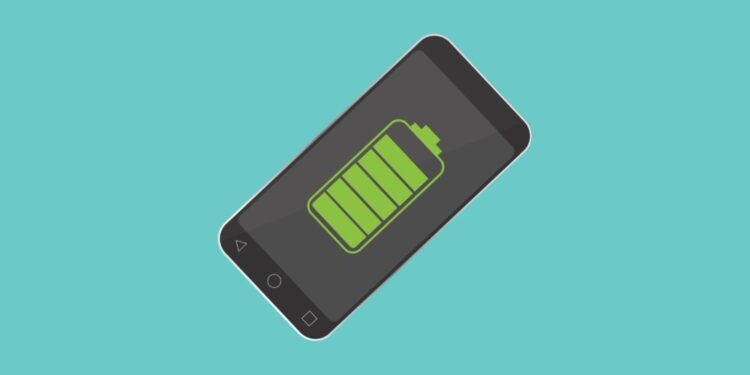Are you tired of your mobile phone battery dying halfway through the day? We’ve all been there, and it’s frustrating to say the least. Fortunately, there are plenty of tips and tricks you can use to improve your smartphone’s battery life and keep it at 100% health for longer. From knowing what kills your phone battery fastest to understanding if fast charging is bad for your device, this article covers everything you need to know about extending the lifespan of your mobile phone battery.
How to improve your smartphone battery life
There are several ways to improve your smartphone battery life, starting with adjusting some of the settings on your device. One way is to reduce the screen’s brightness level, as a brighter screen uses more energy than a dimmer one. Additionally, consider disabling location services and background app refresh for apps that you rarely use. Another tip is to turn off features like Bluetooth or Wi-Fi when you’re not using them since these can drain your battery even if they’re not actively in use.
Another way to conserve power is by turning on low-power mode or airplane mode when you don’t need data connectivity or network coverage. Keeping your phone cool and avoiding extreme temperatures can help preserve its battery health. Avoid exposing it to direct sunlight and remove any cases that may trap heat inside the device. By following these simple tips, you can get more out of your mobile phone’s battery life and enjoy uninterrupted usage throughout the day.
- Adjust your screen brightness: One of the easiest ways to save battery life is by adjusting your screen brightness. The brighter your screen, the more power it consumes, so reducing the brightness level can significantly help extend your phone’s battery life.
- Close unused apps: Leaving apps running in the background can drain your battery quickly, so it’s important to close apps that you’re not using. You can do this by double-tapping the home button on your iPhone or using the Recent Apps button on an Android device.
- Disable unnecessary features: Some features on your phone can consume a lot of power, such as Bluetooth, Wi-Fi, and Location Services. If you’re not using these features, it’s a good idea to disable them to help save your battery life.
- Update your phone: Software updates can help optimize your phone’s performance and improve battery life. Make sure you regularly update your phone’s operating system to take advantage of any optimizations or fixes that may help improve your battery life.
- Use power-saving mode: Many smartphones have a power-saving mode that helps conserve battery life by disabling non-essential features. You can activate this mode to help extend your battery life when you’re running low on power.
How to keep your phone at 100% battery health
Keeping your phone’s battery at 100% health is essential to ensure that it remains functional and lasts for a long time. Here are some tips on how you can keep your phone’s battery in excellent condition.
- Firstly, avoid exposing your phone to high temperatures or extreme climates. Heat is one of the biggest factors that contribute to reducing the overall lifespan of your battery. So make sure you keep your device away from direct sunlight or other heat sources like ovens, stoves etc.
- Secondly, always use an original charger and cable while charging. Using third-party accessories may harm the internal components of your smartphone which could ultimately affect the life span of its battery.
- Thirdly, try not to charge your mobile up until it dies completely as this puts unnecessary stress on its battery cells which can lead to damaging them over time.
- If possible turn off Bluetooth, Wi-Fi, and GPS when they’re not in use because these features consume a lot of power even when idle mode leading towards draining down the phone’s battery quickly.
By following these simple steps you can manage to sustain a healthy cell-phone battery performance over time.
What kills phone battery fastest
There are several factors that can quickly drain your phone’s battery life.
- One of the major culprits is having a lot of apps running in the background. This includes apps like social media platforms, email clients, and even location services.
- Another factor that drains your phone’s battery fast is using features such as Bluetooth or Wi-Fi when you don’t need them. These wireless connections constantly search for other devices to connect with, which use up a lot of power.
- Using your phone on full brightness can also kill its battery very quickly. It’s advisable to turn down the screen brightness or enable auto-brightness so that it adjusts accordingly based on ambient lighting conditions.
- Running resource-intensive games and streaming videos for extended periods also put significant pressure on mobile batteries, making them run flat pretty fast.
- Extreme temperatures – whether too hot or too cold – can adversely affect your mobile device’s performance levels and consequently reduce battery life expectancy by exposing it to harsh environmental stressors over time. Therefore, ensuring proper temperature regulation while charging or using will go a long way in preserving any mobile device’s precious remaining charge capacity.
Does charging to 85% extend battery life?
Many people believe that charging their phones to 100% is the best way to extend battery life. However, this is not necessarily true. In fact, charging your phone to only 85% can help improve its overall battery health in the long run. When a battery is charged to its maximum capacity, it puts stress on the cells and causes them to degrade faster over time.
By keeping your phone’s charge at around 85%, you prevent this excessive strain from occurring on a regular basis. Of course, it may not be practical for everyone to constantly monitor their phone’s battery level and unplug it once it reaches 85%. But if you have the ability to do so (such as through certain third-party apps), you may want to consider this approach.
It’s also worth noting that while charging your phone multiple times a day won’t necessarily damage the battery itself, doing so can still reduce its lifespan over time due to wear and tear on other components within the device. So while charging up regularly might be convenient in the short term, try not to make it a habit unless absolutely necessary.
At what percentage phones should be charged?
One common question asked by smartphone users is, “At what percentage phones should be charged?” The answer to this question depends on the type of battery your phone has.
- If your phone has a Lithium-ion (Li-ion) battery, it’s recommended to charge it when the battery level drops to around 20-30%. Avoid completely draining the battery as it can affect its lifespan. It’s also best not to keep your phone charging overnight as overcharging can damage the battery.
- On the other hand, if your phone has a Nickel-based (NiMH) or Nickel-cadmium (NiCd) battery, it’s best to discharge them fully before recharging. This is because these types of batteries have memory effects and charging them without discharging will shorten their lifespan. It’s also important to consider how often you use your smartphone.
If you frequently use power-hungry apps like games and video streaming platforms, you may need to recharge more often than someone who uses their device mainly for texting and calling. There isn’t an exact percentage at which you should charge your mobile since different batteries require different care. However, keeping in mind some general guidelines can help extend its lifespan and optimize its performance.
Is it bad to charge your phone multiple times a day?
One common question that smartphone users often ask is whether charging their phone multiple times a day is bad for the battery. The answer to this question depends on several factors.
- Firstly, it’s important to understand how lithium-ion batteries work. These batteries are designed to be charged and discharged regularly without any adverse effects on their performance or lifespan. In fact, modern smartphones are designed to handle frequent charging cycles. However, if you’re using an older phone with an outdated battery technology or a low-quality charger, then frequent charging may cause some damage over time. Similarly, exposing your phone to extreme temperatures can also affect its battery health.
- Another consideration is the way in which you charge your phone. If you consistently let your battery drain completely before recharging it all the way up again, then this could put unnecessary stress on the battery and reduce its overall lifespan.
While charging your phone multiple times a day isn’t necessarily bad for its health – provided that you’re using quality chargers and keeping things cool – there are still some best practices that will help extend the life of your device’s battery over time.
How long do phone batteries last?
One of the biggest concerns smartphone users have is how long their phone’s battery will last. Unfortunately, there isn’t a straightforward answer to this question as it varies depending on several factors.
- Firstly, the type of battery your phone has can affect its lifespan. Lithium-ion batteries are commonly used in smartphones and typically last for around 2-3 years with regular use.
- Secondly, your usage patterns also play a role in determining your phone’s battery life. Heavy usage such as gaming or streaming videos can drain your battery much faster than light usage like texting or browsing social media.
- Additionally, environmental factors such as extreme temperatures can also impact your phone’s battery life. Exposure to high temperatures for extended periods of time can cause permanent damage to the battery cells and shorten its lifespan.
To extend the lifespan of your phone’s battery, it is recommended that you avoid overcharging it and keep it between 20% – 80% charge whenever possible. Regularly updating your apps and operating system can also help optimize power consumption on your device. While there isn’t a one-size-fits-all answer to how long smartphone batteries last, taking care of your device and being mindful of its usage patterns can help prolong its lifespan.
Is fast charging bad for the battery?
Fast charging has become a popular feature in smartphones, allowing users to charge their devices quickly and efficiently. However, some people are concerned that fast charging might be bad for the battery. So, is it true? Fast charging can generate heat which can cause some damage to the battery over time.
The heat generated during fast charging can increase the internal resistance of the battery and reduce its overall capacity. But this doesn’t mean that fast charging is always bad for your phone’s battery life. Most modern phones come with built-in safety mechanisms that prevent excessive heating during fast-charging sessions.
Moreover, many smartphone manufacturers have introduced technologies like Qualcomm Quick Charge or USB Power Delivery which adjust voltage levels based on temperature to ensure safe and efficient charging. In short, while there may be some minor drawbacks associated with using a fast charger regularly – such as faster wear and tear – most experts agree that they’re generally safe to use if you follow proper usage guidelines provided by your device manufacturer.
What drains a phone battery?
In conclusion, it is clear that there are many ways to improve the battery life of your mobile device. From adjusting settings and disabling unnecessary features, to investing in a good quality charger and taking care of your battery’s health, there are plenty of simple tips and tricks that you can implement into your daily routine. It’s important to remember that while fast charging may seem convenient, it can also have negative effects on your battery’s long-term health.
Similarly, overusing power-hungry apps or leaving unused features running in the background can quickly drain your phone’s battery life. Ultimately, by being mindful of how you use your smartphone and taking proactive steps towards prolonging its lifespan, you can ensure that you get the most out of your device for years to come. So go ahead and try out some of these tips today – we guarantee they’ll make a noticeable difference.















